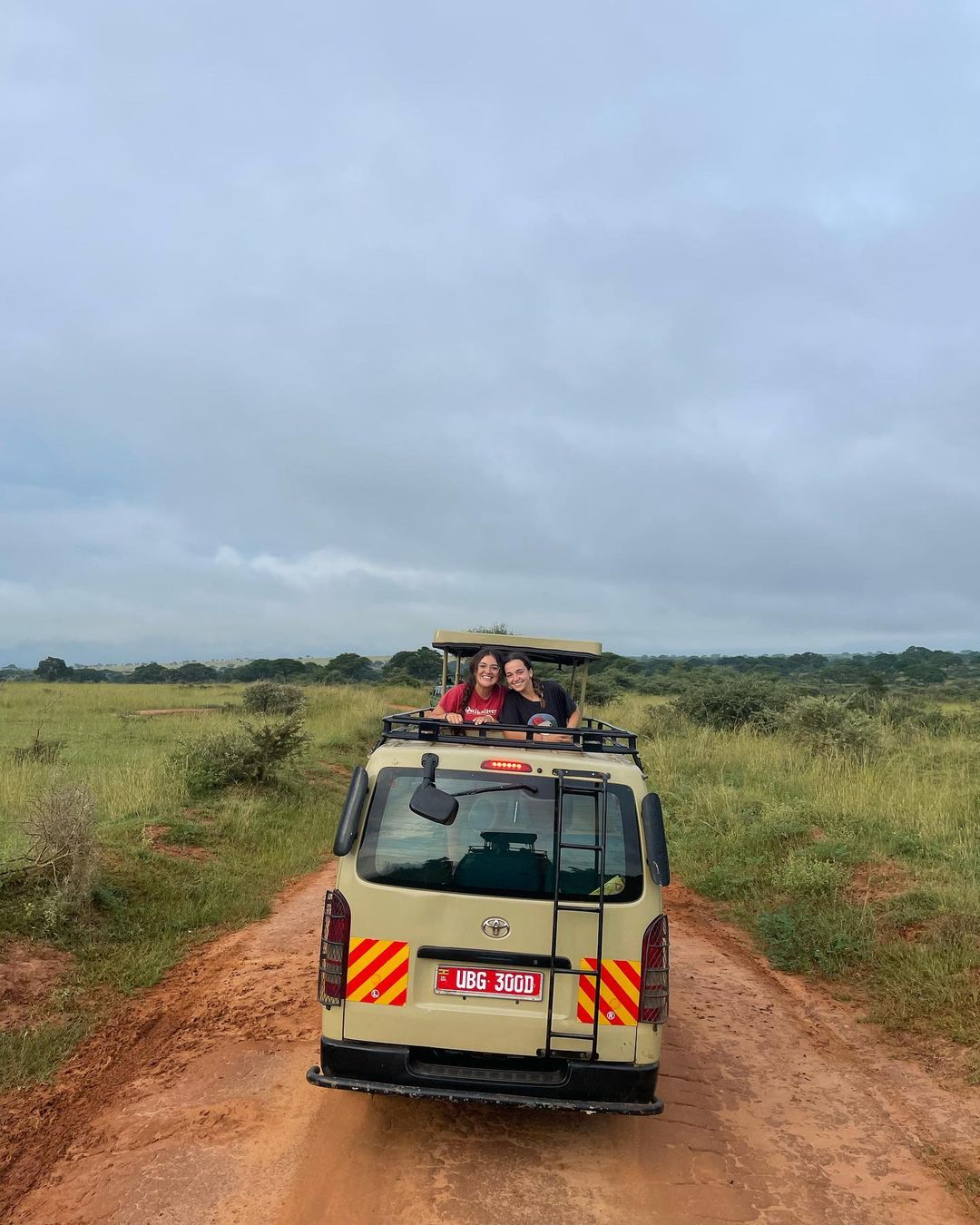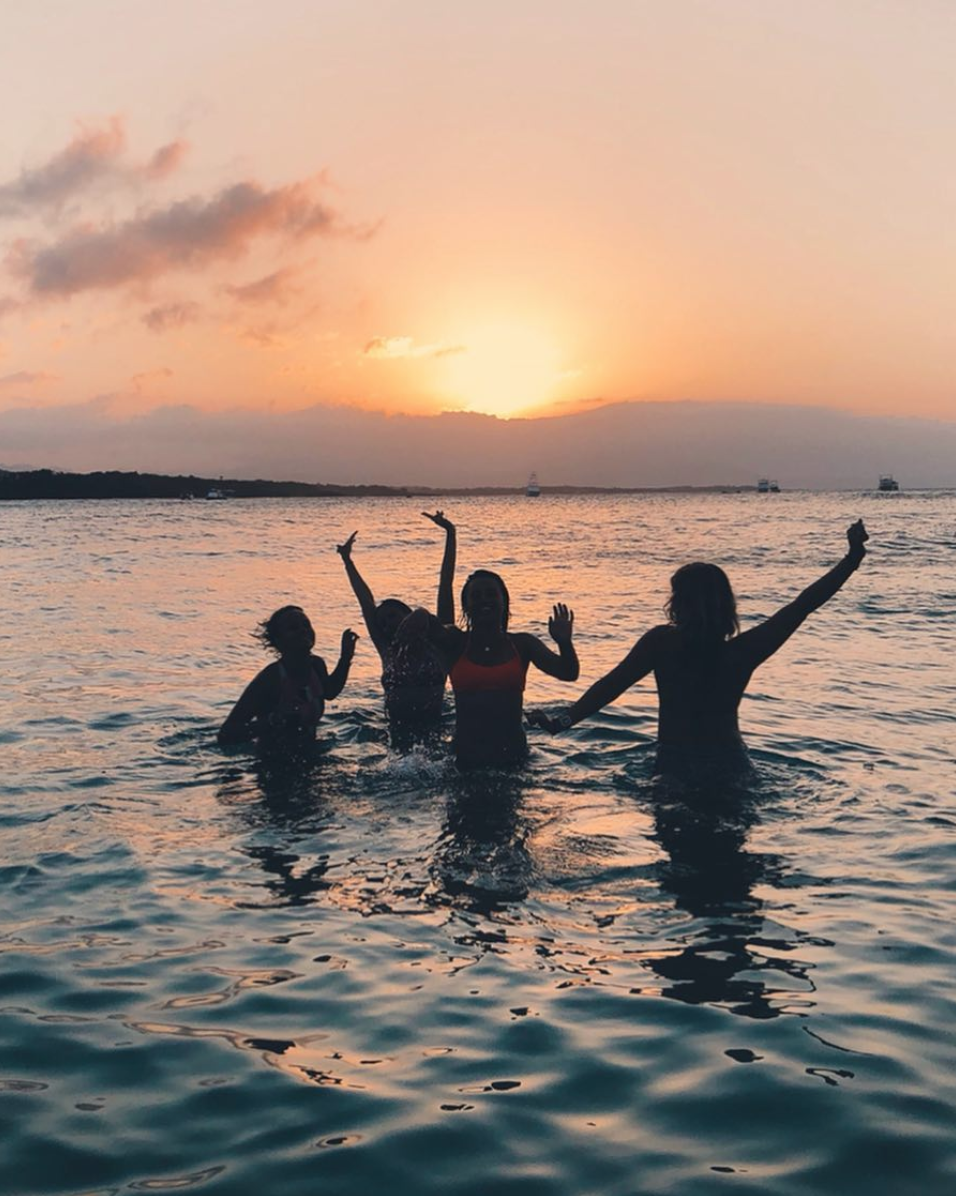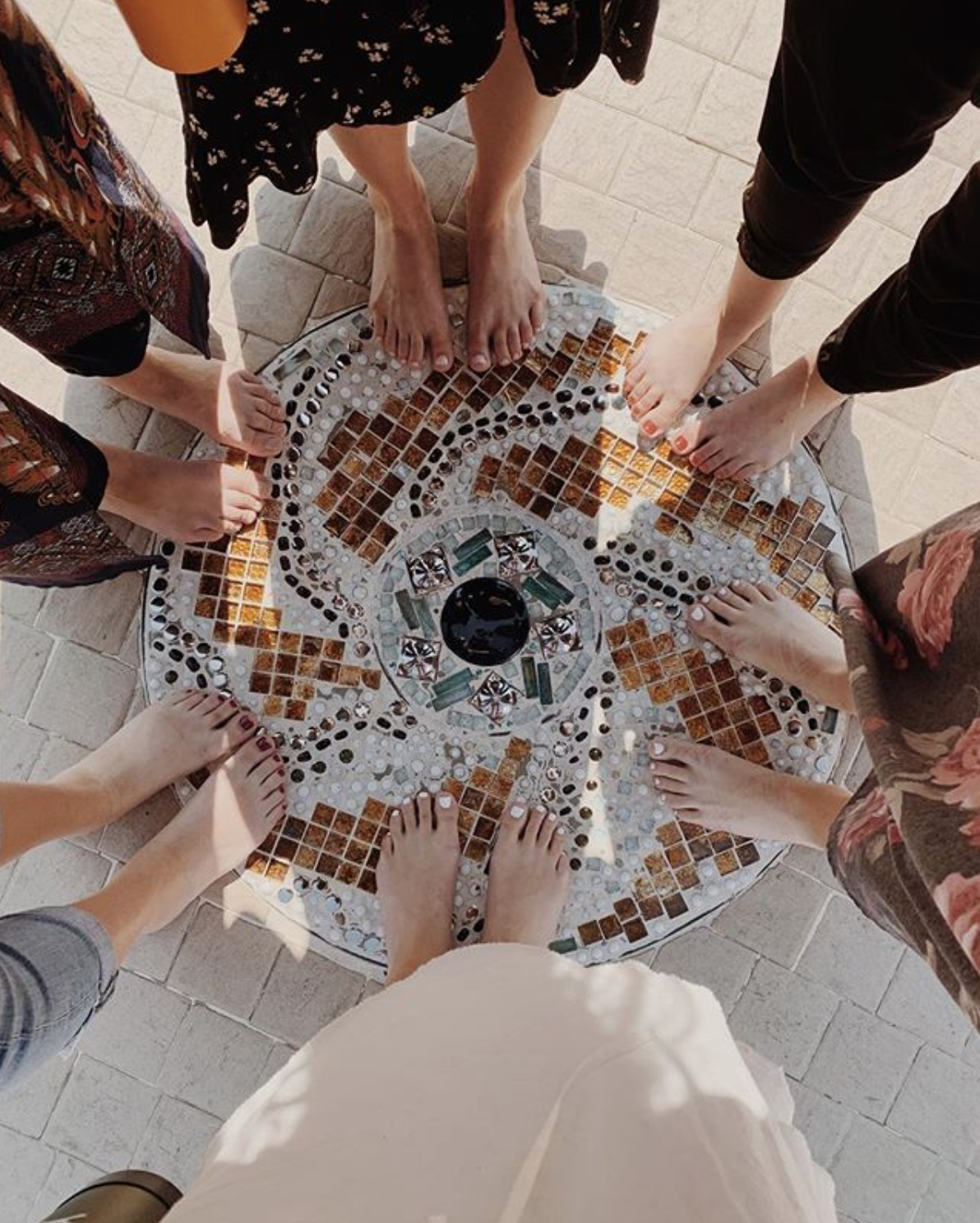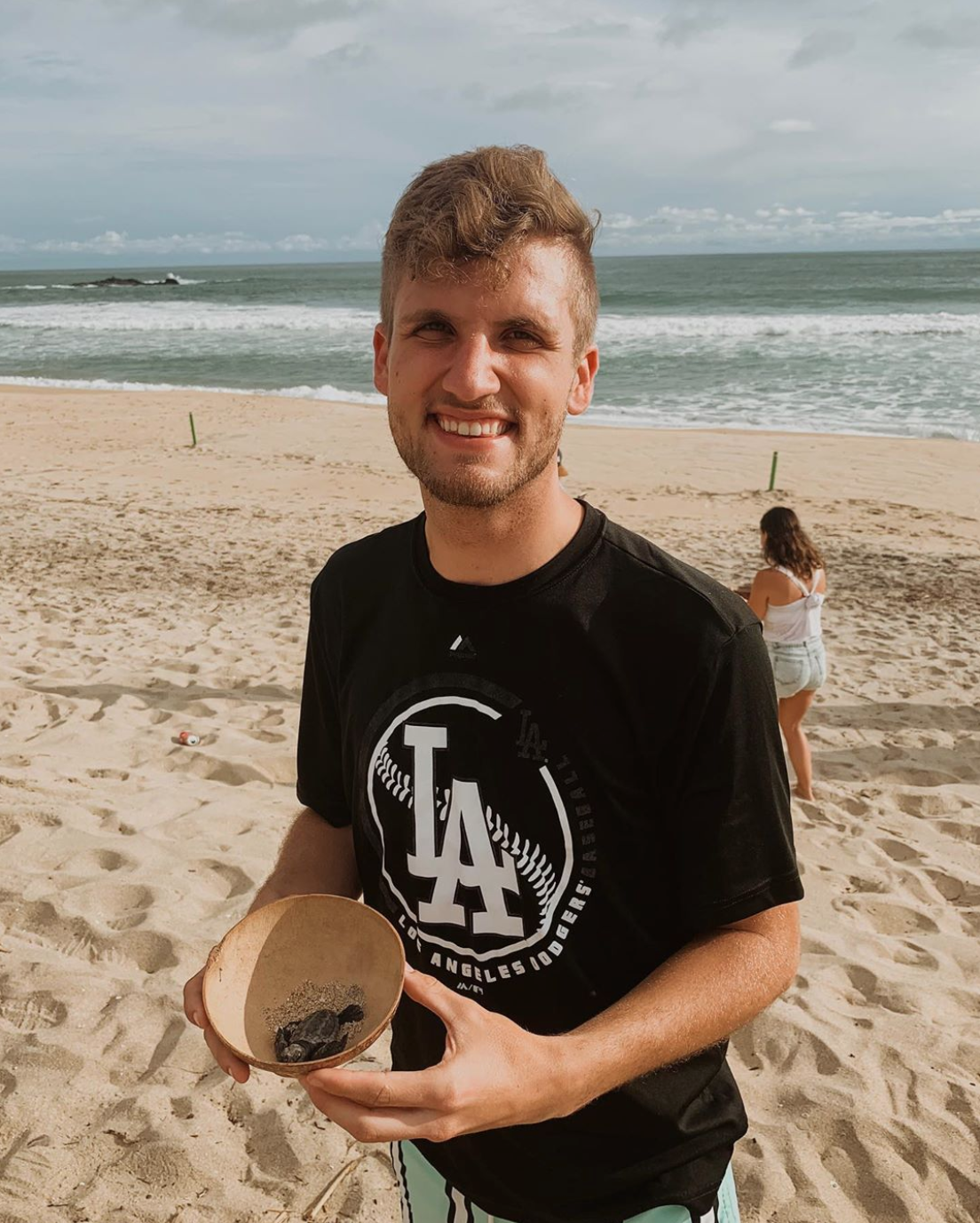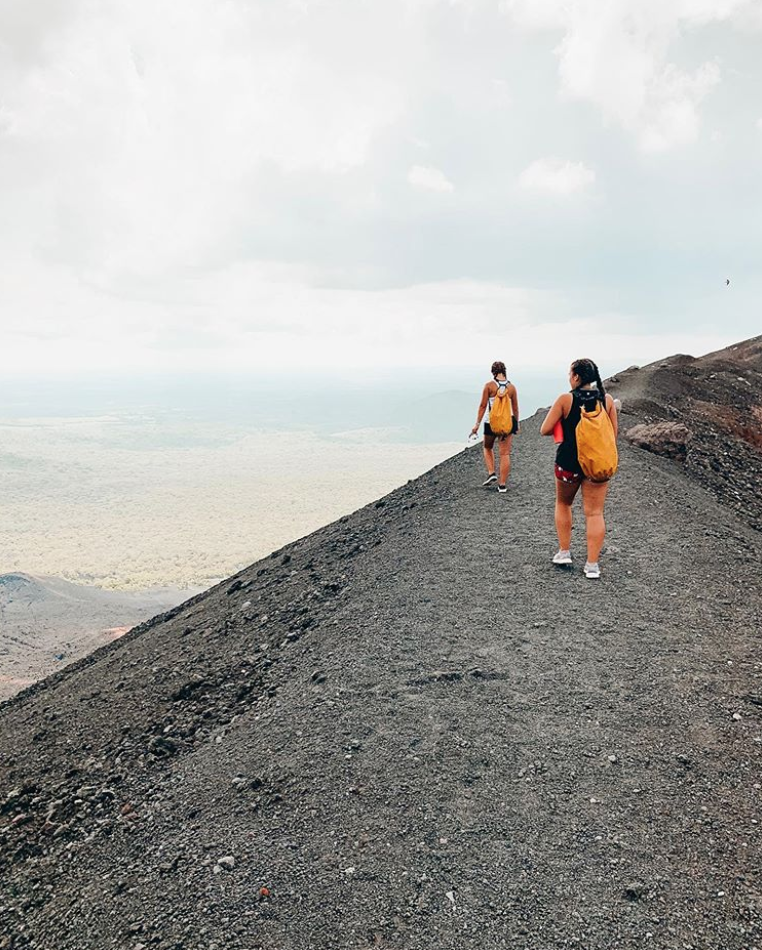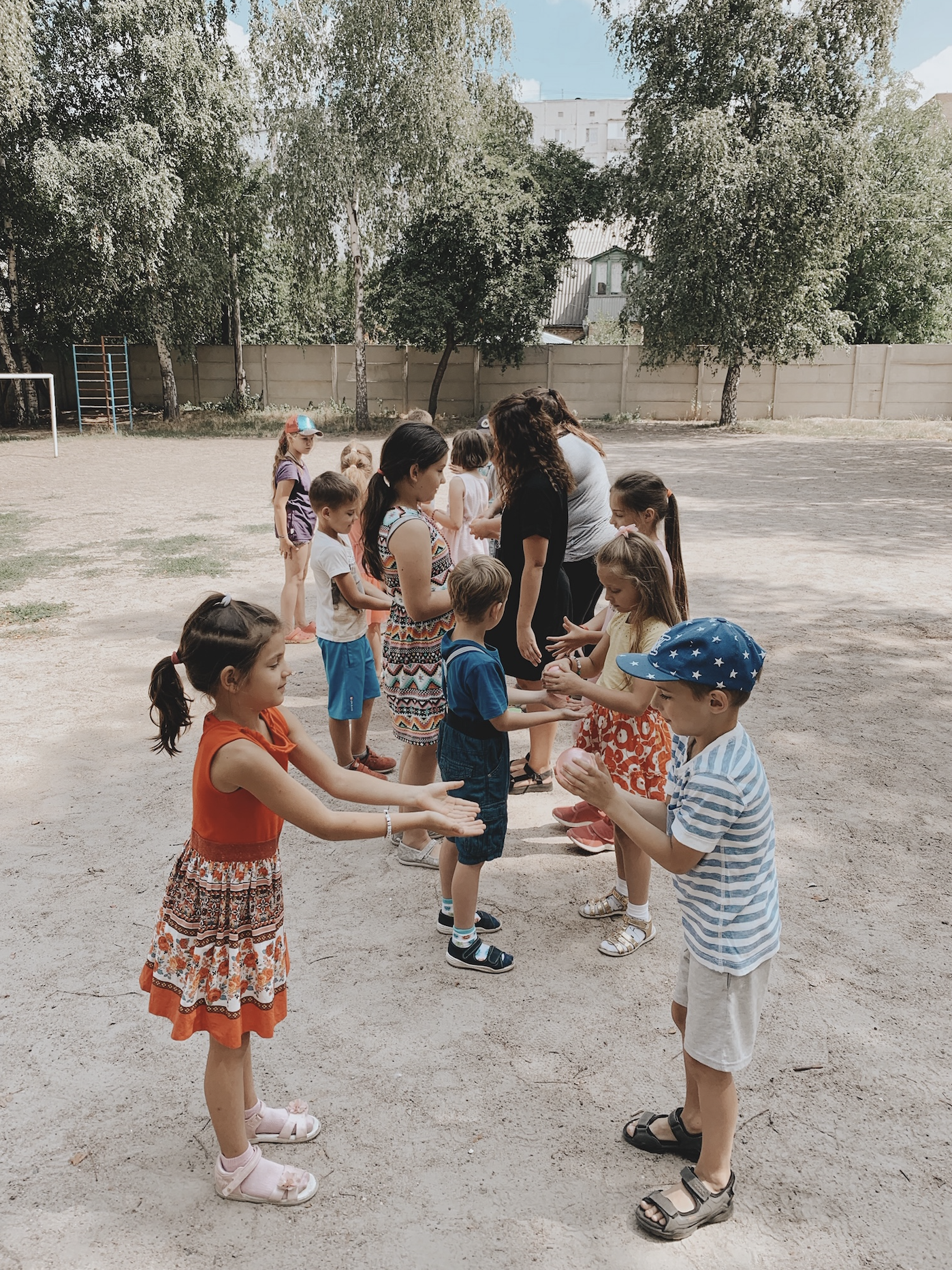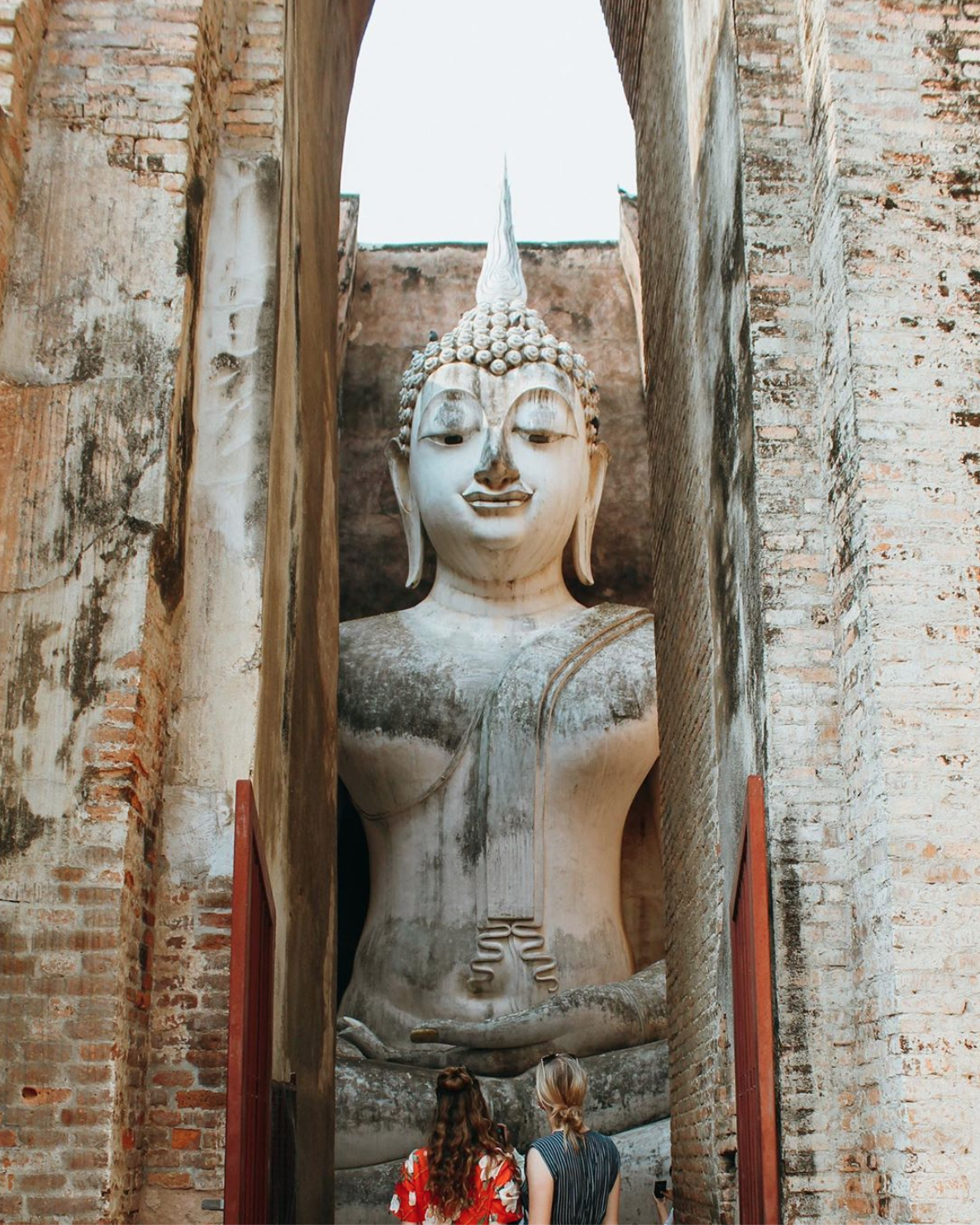
Volunteering in Romania is different than any other ILP location. Some of our ILP alumni came together to give future volunteers a real look into what to expect as a volunteer here.As a volunteer in Romania with International Language Programs, the impact you make on the kids and community isn't through teaching English like it is with our other programs, but instead through working with children in foster homes. So what does that actually look like?
Come see Romania for yourself, but as a volunteer!
fill out an application and make a difference!
Since volunteering in Romania is different from volunteering in any other ILP location, the challenges you face as a volunteer will also be very different.
We talked to several volunteers in Romania to ask them about what a typical day really looks like for them. Everyone's experience will be a bit different, but we wanted to give you a peek into what to expect. This blog post is all about digging into the good, the bad, and the ugly. Let's begin!
- Typical Day in Iasi
- What Am I Doing During Volunteer Hours?
What Are The Kids Like? - Biggest Suprise
- Hardest Part
- Alumni Best Memories
- Advice For Future Volunteers

A Typical Day In Iasi
You and your fellow volunteers will be spending most of your time in the town of Iasi (pronounced "yawsh"). It's easy to imagine all of the glamorized instagram posts of the volunteers visiting countries throughout Europe when you imagine living here...and don't get me wrong, you will get plenty of opportunities to travel! But don't forget that Iasi is your home base and where you spend the majority of your time while you live in Europe.
Volunteering
ILP groups volunteer at multiple foster homes around the city, sitting around a 30-minute drive apart. Not only will a lot of your day be filled with the kids you spend time with (more details on that later), but you will also be spending time commuting back at forth each day.
Depending on where you are assigned, you will either walk, take a bus, or take a train to the foster home. It can be typical to expect multiple back-and-forth trips to and from the foster home during your day. The kids in our Romania program have a unique schedule that we adapt to, so it's typical that your volunteer hours are split up into chunks throughout the day (rather than one period of time in the morning or the afternoon).
For example, one of our alumni said that her volunteer schedule looked like this: Commute to school, teach for 2.5 hours, commute home for lunch, take a "much needed" nap, commute back to the school, volunteer for 1.5 hours, commute back home for dinner, prepare for the next day.

Free Time
Even with volunteering taking up a large portion of your day, you will be surprised by how much free time you come across before and after volunteering! Even the daily commute can give more downtime than you anticipated.
You can expect to be pretty burnt out after a full day of volunteering with your kids, but after a quick nap, here are a few things alumni enjoyed doing during their typical weekdays.
Spending time inside
Social media might make it look like living abroad means constant adventures, and while you'll have many of those, you'll also have many "normal" or even seemingly boring days (really similar to how life is like back at home!). After a long day of volunteering, it's totally normal to spend days relaxing at the house. Volunteering will take it out of you! Many of our volunteers prepare for nights like this by bringing card games, coloring books, bracelet supplies, and downloaded movies.
Those "normal" days look a lot like typical day-to-day to-do's, too. Living like a local not only includes immersing yourself in a whole new culture but also the things that don't show up on social media: grocery shopping, cleaning, organizing, calling family and friends, and preparing for what you will do at the foster homes the next day.
Our Romanian volunteers also vacation like there is no tomorrow, but these vacations take a lot of planning. Countless nights are spent during the week planning out allllll of the details needed for your dream trips to places like Florence, Venice, and Paris. These vacations take a lot of work, but we highly encourage our Romanian volunteers to travel, travel, travel!
Explore town!
Right nearby where you live are dozens of historic buildings, art museums, cathedrals, and more! The streets oftentimes will have entertainment, especially during warmer months. Visiting the Palas Mall has been a classic activity for alumni. Walking around and window shopping, getting a sweet treat or two, and taking an evening stroll are great ways to get comfortable with the city.
Did you know Iasi has an app filled with things to do in the city? It's always up to date and can be the best resource to take advantage of while you are living there. The app is called "Iasi Official App" and just your luck, there's a setting that makes it all in English!
Find it here in the Apple store
Find it here in the Google Play store

Nightly Pretzel from Lucas Bakery
Now this one is very specific, but the alumni want this to be heard! They say that when volunteering in Iasi, you MUST try Lucas soft pretzels. Every single day after school, our ILP alumni love to stop by Lucas riiiiight before they close. Why? Because all pretzels are 1/2 off! After a long day of volunteering, 1/2 off pretzels seriously helped make our volunteers' days a little brighter. These pretzel trips might become some of your favorite memories from your semester.
What Am I Doing During Volunteer Hours?
Volunteering in Romania looks very different than any other ILP location. Traditionally our volunteer programs are focused on helping children learn English. In those programs, it's essentially like an after school program or an addition to their school day. For English lessons, volunteers spend time planning lessons each day.
Romania is unique because here you're not teaching English at all (which means you also aren't spending time planning English lessons). Rather, you are working with children in an orphanage/foster care system, many of whom have severe disabilities and unique needs. All of the children live in foster homes/apartments.
Despite the foster homes having caregivers, they don't have time to give 1-on-1 attention to every child inside of the homes. This is where you come in. You are there to bring these kids love and attention and to help brighten their repetitive days.
The fluidity of how your day will go can be stressful and working with these kids is going to be a work in progress. Romania volunteers have said that figuring out what you are going to do with these kids (some of whom can't talk, see, stand, etc.) will definitely be one of your biggest struggles. We asked some alumni what they did with their students to give you an idea of how you will be spending a lot of your time at these foster homes.

"Going outside was the best"
If you are selected to work with foster students who are physically able and are volunteering during a time of year when the weather permits, you will want to spend a lot of time outside. Iasi is full of parks, and some are nearby to the foster homes where you teach. The caregivers at the foster homes will oftentimes tell you to take the kids outside to play or to go on walks. "I went on so. many. walks. I genuinely walked around for like 1.5 hours some days!"
"Get to know their nursery rhymes"
Inside the foster homes, there are TVs playing music and movies. Whether you want to or not, you're going to get familiar with these songs, and the kids love when you sing and dance along. Some of the kids may not be able to sing or dance with you but remember that the joy and excitement you bring into the room with them will seriously bring so much light into their lives.
"So. many. massages."
It is very likely that your foster kids may be bedridden. Because of this, they aren't able to move their bodies much. If you have kids who can't move, you will have to be extra creative with what you will do with the time you have with these kids. Massaging their little arms, legs, hands, and shoulders are very common things that our volunteers have found to be both helpful and successful for these kids' well-being.
"Show up, see what works, and learn from each other"
Volunteers shared that in the beginning, "you will feel like you're drowning a little bit." No matter how much ILP tries to prepare you beforehand, experiencing these homes for yourself will be a shock. The best thing you can do for yourself and these kids is to not beat yourself up, to reflect, and to strive for a more successful day tomorrow.
"The kids are angel babies, but can also be so mischievous!"
Each child has his/her own unique needs. This means that preparing for your time with the kids looks like taking into account their individual challenges and brainstorming ways to best serve each one.
Most of the foster kids in Romania are severely disabled, but not all of them. A few of them have more mental disabilities rather than physical disabilities (more on this later). These kids can be energetic! You can expect to be "putting out fires" (not literally) for most of your time. We're talking running after them and preventing them from pulling down curtains or unplugging light switches. Those mid-day naps make a little more sense now, right?
You will learn what your kids' capabilities are, what the caregivers recommend, and what you find most successful over time. Some days you may show up with a couple of stories to read, another day you may show up with a paper bag and some paint and spend time helping the kids feel a new sensation of squishing paint around. Other days you may spend the whole day singing songs, massaging shoulders, or walking your kids in their wheelchairs. No matter what, just know that despite not seeing it for yourself, showing up is making an impact on their lives.

What Are The Kids Like?
We'll say it again because it's such a key piece to how you'll be helping in this program: Every single child you work with in Romania is going to come with their own set of adorable quirks and difficult challenges/disabilities.
So what does that look like exactly? One of the main goals of this blog post is to give you transparent experiences that ILP alumni have had while volunteering Romania. Our alumni wished they knew more about the disabilities they would be working with before they arrived, so we got allll the details that we could to help you be more prepared.
Once you arrive in Romania, each volunteer in your group will be assigned particular children that they'll be working with that semester. That means that you won't know exactly what to expect until you arrive, and you also won't work with every child. You can provide better quality time as you get to know your kids, so it's in their best interest to work with the same volunteer throughout the semester. Your experiences will be similar but different than the other volunteers in your group.
Most children are 5-18 years old, with a few who are younger or a smidge older than that range. Every child in the program is disabled, and the majority of the children we work with are orphans, but not all. Some have parents who are unable to care for their child financially, but still visit. Others attend a school nearby that’s not available where they are from. How you help will drastically depend on the needs of the children living in the apartment you will be volunteering in.

Here is a list of disabilities or habits these children have had that you will likely see as a volunteer:
- Children in wheelchairs
- Drooling, hands in their mouths, getting drool on you (preventing kids from choking on their own hands)
- Lots of energy, yelling, making noise, fighting each other (overstimulating)
- Bad listening skills (language barrier)
- Kids attempting to bite, hit, climb, and jump on you
- Reaching for and ripping out your hair clips and jewelry
- Severe Scoliosis
- Broken bones or super frail bones that you have to be extremely careful around
- Autism (kids hurting themselves or alienating themselves)
- Down syndrome
- Sores from head to toe
- Discolored teeth
- Inability to move themselves or feed themselves (paralysis)
- Body deformities (extra limbs or a lack of limbs and appendages.)
- Extremely pale
- Shortly cut hair
- Deaf
- Blind
At first, seeing all of these disabilities is going to be a shock. Volunteers say that it can be upsetting, overwhelming, and uncomfortable. As much as we can talk about these things before you arrive, know that it's completely normal to experience these feelings. Plus, not only is working with these types of disabilities going to be a new experience, but you're also in a new country, out of your comfort zone, experiencing culture shock, and living with other volunteers whom you just met! It's a lot to take in, to say the least.
Especially at the start of your semester, give yourself grace and remember that even the best experiences have hard moments. As you get more familiar with kids, you'll create relationships that strengthen your confidence in how you can serve them. In time, you will be able to see past what’s on the outside and find their sweet souls that are on the inside!
Our Romania alumni left their semester with the fullest hearts for these kids, calling them their "angel babies" and mentioning that the kids who are sweet and cuddly are a "breath of fresh air."

Biggest Surprises
Before we jump into surprises, here's a little disclaimer. We'll do as much as we can to prepare you for living in another country, but after decades of working with volunteers, we've found that unexpected things still come up.
Everyone's experience is different! What may not be a big adjustment for you, may be a bigger adjustment for another volunteer. We'll have training before you go to help prepare you on multiple facets of the experience to give you a glimpse at what to expect. But even if we cover a topic during training, sometimes it's just hard to really understand how much it can impact you until you're there actually living it.
We asked our alumni though what were some of the biggest surprises for them to help your prepare for your trip. Here's what they said!
"The weather can be extreme highs and lows."
When packing for your semester in Romania, you can get a pretty good idea of what the weather is typically like during your semester. Just remember that you are going to be there for three months and weather may be in a transitional period for some of that. You will likely be traveling to other countries that may have different weather too. Be prepared for anything, especially heavy rain!

"They are very efficient people."
The people in Romania, specifically the caregivers at the foster home and your local support are "efficient" with their time and how they spend it. This basically means that small talk is non-existent. With that cultural difference, the people here can feel a bit "cold" or "standoff-ish" but don't take it personal! They don't hate you! It's typical Romanian culture to communicate that way. It just feels different because people in the United States tend to be more bubbly to strangers.
"You will be very reliant on google translate."
In Romania, they speak Romanian... not English! That's one of those things that's hard to really prepare yourself for until you experience living in it day after day. Many parts of Europe cater to tourism, so you may have not experienced a large language barrier if you've visited before, but Iasi isn't like that. Not very many people will speak English, so you are in charge of finding a way to communicate. Google Translate was our alumni's typical go-to.
Take note that this will also be the case with the kids you teach at the foster homes. You aren't there to teach them English, so the only way you will be able to really communicate with them is by learning Romanian. Oh how the tables have turned (more on this later)!

The Hardest Part
There is so much to look forward to when planning on volunteering in Romania. We have never ending blog posts with vacation ideas, fun things to do in Iasi, and we haven't even mentioned the lifelong friendships you may develop with your fellow volunteers. This post is more about the nitty and gritty, so we wanted to include one last section about the grit.
"When they tell you it's going to be hard, actually believe them."
Hey guys...it's going to be hard, but you are going to do great! Volunteers usually say that learning how to work with the kids was the hardest part for them, but you have a pretty good idea of what to expect now. When you see it all for the first time, it's going to be a shock, and will take awhile to get used to, but you will get used to it!
Every volunteer mentioned that by the end of the semester they got a lot more comfortable as they figured out their kids' needs. Just remember that these kids need you and all of the efforts you put in are brightening their days.
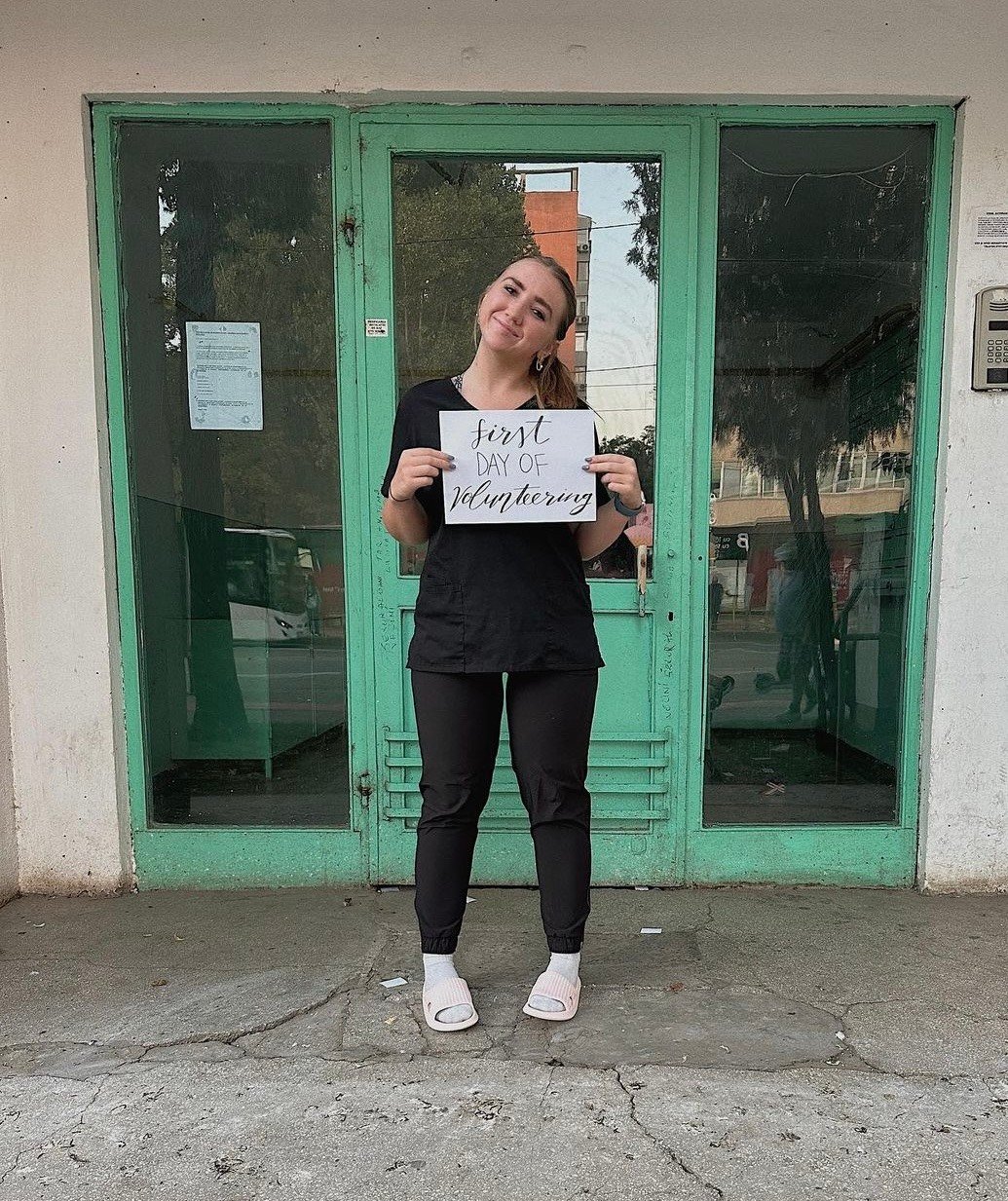
Alumni's Best Memories
So many of the Romania alumni light up when we ask them about their experience living and volunteering there. We focused a lot on the hard, but there are "so many positives" about this beautiful country. The town is full of history, amazing views, delicious food, and locals that you will become familiar with, learn their names, and make you feel like you are part of a community.
"Romania is BEAUTIFUL!"
Our alumni loved how not only Iasi was gorgeous with its colorful fruit stands, cathedrals, and river running through the middle, but also how easy it was to hop on a train to nearby towns that also had incredible views. Like Dracula's Castle!

"The people are hilarious"
One of our alumni recalled some of the locals that she would recognize on the street that brought little moments of laughter into her day-to-day. Specifically, they fondly spoke of a lady who would be out talking with the birds every day. Little niche memories like this are what make your semester living abroad different from a vacation abroad. It truly is the little things.
"The tiniest little things [with the kids] mean the world"
These kids are so. much. more. than their disabilities. As you learn about them you will find and feel so much love for them and for just about anything they do. One alumni recalled how things as simple as the kids saying your name, smiling at you, or drawing you a picture seriously felt like a precious gift.
Some volunteers would experience coming into the foster home and having their kids rush the door, so excited to play, and drag them inside to play with them. They would build real personal relationships with the kids by having inside jokes in both English and Romanian, and goodbyes were more tender and heartfelt than anything else they had experienced.
Another thing that a few alumni mentioned is that they were very grateful to be an example of a loving figure for the kids. Your moments spent with these kids are different from any other interaction they have. Many volunteers leave their semester feeling like they love their students like they are their own kids.

Advice For Future Volunteers
As you prepare for your semester in Romania, take not only the final words of advice from our alumni with you, but everything they mentioned prior to this as well. You are about to have a life-changing semester in Romania, and we are so excited for you to make that country feel like home. Get ready for an experience of a lifetime!
"Take advantage of the Romanian language lessons"
It's true! Your local support will be offering Romanian language lessons to you. These lessons are SO important to attend and take seriously, especially if you're working with chatty kiddos. One of our alumni noted that all of the volunteers in her group that worked hard to learn the language and practiced it ended up having a better semester and built much deeper connections with the people around them. "The kids and caretakers love to hear you speak!"
There are a few phrases that the alumni recommend you learn or write down before you even arrive. Resources like Duolingo are a great way to get started before you arrive in Romania, to get a little taste of how the language sounds. Here are a couple of the phrases they recommend you learn:
- Hello
- Goodbye
- Numbers 1-10
- "I don't speak Romanian"
- "How much does this cost?"
Some of your kids might even want to teach you some Romanian! Let them! Maybe in return you can teach them a little English, but do remember that unlike any other ILP location, the main point of being there is to be a support for the kids, not to teach them English.

"Mindset is really important"
Staying positive through all of the unknowns, ups, and downs will genuinely make or break your semester. After getting thrown into a new country, surrounded by unfamiliarity, you have to make the most of the craziness that comes with that.
"Keep your focus on the kids!"
When you choose to volunteer in Romania, you need to remember that the reason you are there is for those kids! Not only the kids, but the caregivers also need your help and to make the most of your time spent with them. Almost all alumni mentioned, "The vacations are awesome, but if you aren't going mainly for the kids - don't go."
Yes, the vacations, the friendships, and the culture exchange will be so incredible and should absolutely be something you look forward to as you head to Romania, but reminding yourself that those kids are the reason you are there and prioritizing that will seriously make this semester abroad the most memorable and positive.

Want to learn more about our Romania program?
International Language Programas (ILP) is a Utah based non-profit organization that sends college-aged volunteers around the world to help kids. This is your sign to go make a difference. Learn more below and apply today!



